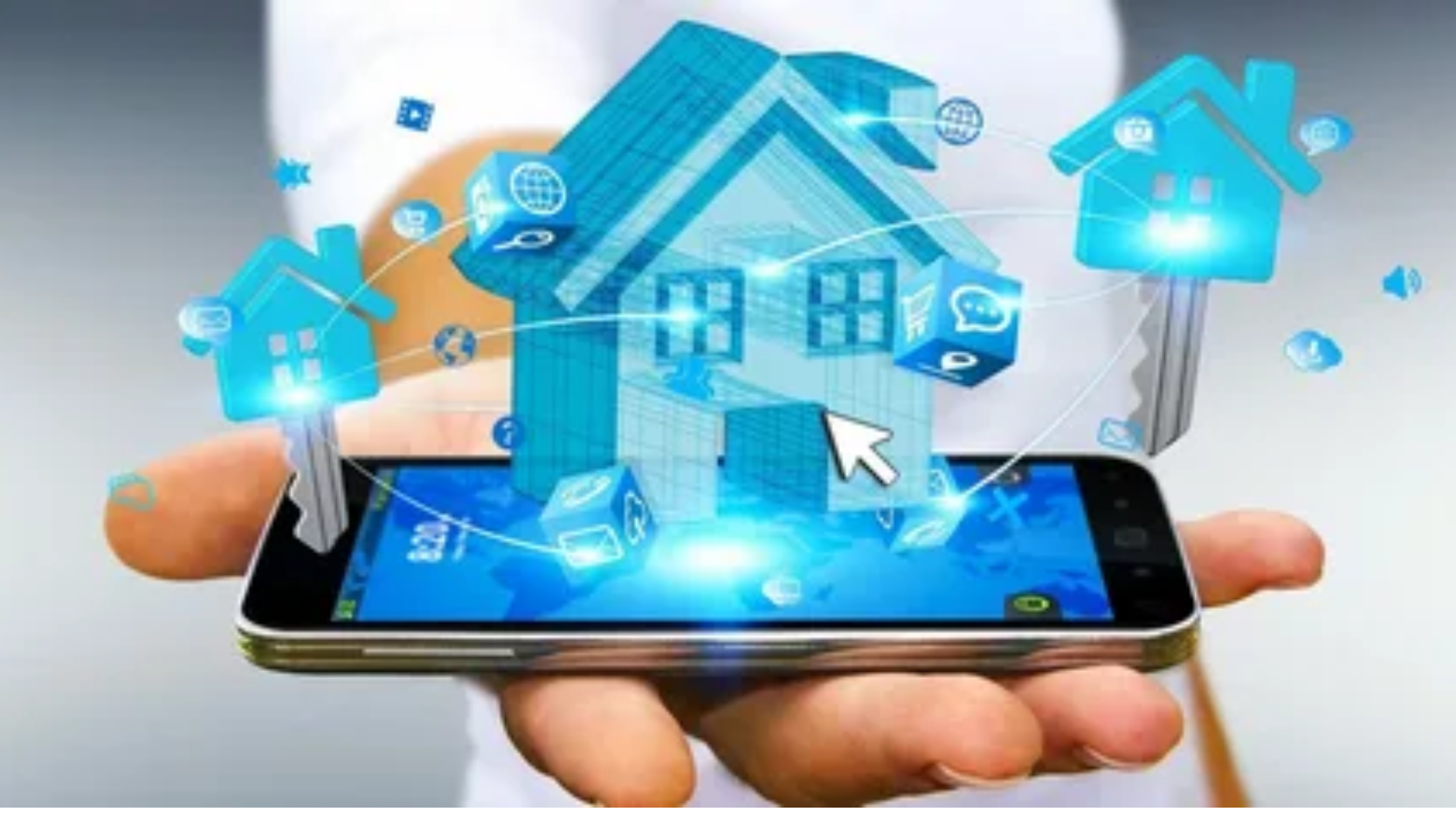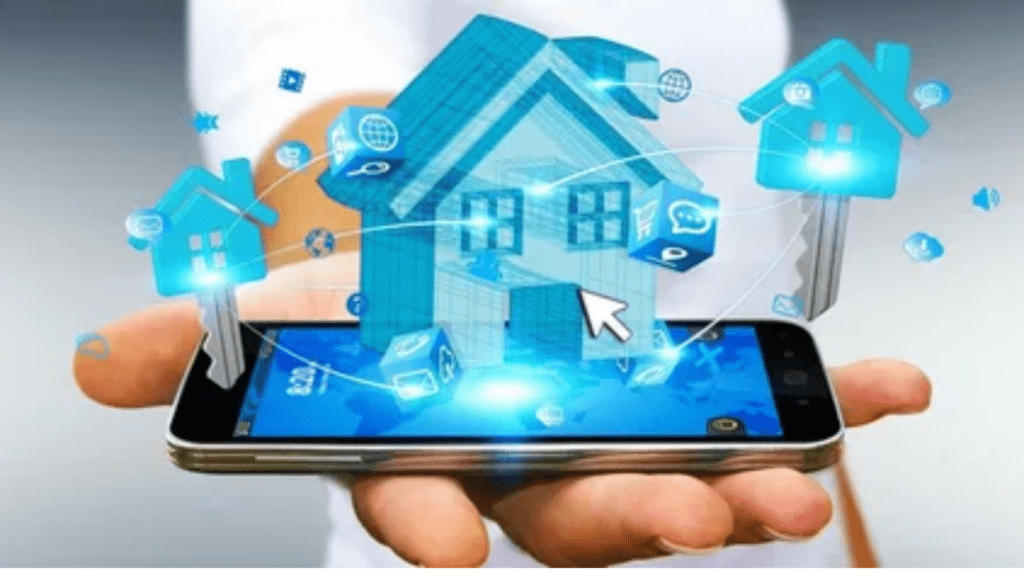In recent years, the real estate industry has been turned upside down—thanks to the rise of smart homes. It’s almost as if the Jetsons’ futuristic house has become our reality! Whether it’s controlling your lights from your phone, having your refrigerator tell you you’re out of milk, or making your security system smarter than most humans (maybe even smarter than you), the future of smart homes is here and growing fast. This article explores how technology is revolutionizing real estate in ways we never thought possible.
What Exactly Is a Smart Home?
Before diving into the transformation that smart homes are bringing to real estate, it’s important to understand what a smart home actually is. It’s not just about having cool gadgets; it’s about making life easier, safer, and more efficient.
A smart home uses devices connected to the internet that can be controlled remotely through apps or automated systems. From smart thermostats to video doorbells, these devices help homeowners monitor and control various aspects of their homes, often with the goal of improving energy efficiency, convenience, and security.
Some Key Features of Smart Homes
- Smart Lighting: Control your lights with voice commands or remotely via smartphone.
- Smart Thermostats: Automatically adjust the temperature based on your habits.
- Security Systems: Cameras, doorbells, and locks that you can monitor in real-time.
- Voice Assistants: AI-powered assistants like Amazon Alexa or Google Assistant that manage tasks.
- Smart Appliances: Refrigerators that send you alerts or ovens you can preheat before you get home.
How Smart Homes Are Changing Real Estate
If you think smart homes are only for tech enthusiasts, think again! Real estate agents are jumping on this trend because it’s not just about selling a home anymore—it’s about selling a lifestyle. Technology is now one of the key selling points for properties. Let’s explore the impact:
1. Increased Property Value
Imagine you’re touring two homes. One has a regular old-fashioned light switch, while the other has smart lights that dim and change colors with a voice command. Which one sounds more appealing? The smart home, of course!
Smart home technology is becoming a major factor in determining property values. In fact, according to recent studies, homes equipped with smart technology can see an increase in value by as much as 5-10%. Buyers are willing to pay extra for the convenience and security these features offer.
2. Energy Efficiency Is a Huge Selling Point
Smart homes are often synonymous with energy efficiency. With devices like smart thermostats, homeowners can save a significant amount on energy bills. When potential buyers see a house with energy-efficient features, they know it will save them money in the long run.
Many smart devices come with data tracking, showing homeowners exactly how much energy they’re consuming. This not only helps the environment but also cuts down costs. Smart home buyers are smart about their money too!
3. Simplifying the Buying Process
Would you believe that technology has made it easier to buy a home too? Real estate agents are using virtual tours, 3D walkthroughs, and even augmented reality to showcase homes. You could be sitting in your pajamas with a cup of coffee while taking a virtual tour of a house across the country. Technology in the real estate market makes it easier to check out properties without ever leaving your couch.
This flexibility makes homes with smart features even more attractive because buyers can visualize how easy it will be to manage their future home from anywhere.
Smart Homes vs. Traditional Homes: A Quick Comparison
To really highlight the difference, let’s look at a table that compares smart homes and traditional homes:
| Feature | Smart Home | Traditional Home |
|---|---|---|
| Lighting | Controlled via app or voice, customizable schedules | Controlled by manual switches only |
| Security | Cameras, motion sensors, doorbell alerts via phone | Traditional locks, no real-time notifications |
| Energy Management | Smart thermostats, energy consumption tracking | Manual thermostats, no tracking |
| Convenience | Voice assistants, remote control over multiple devices | Must operate everything manually |
| Property Value | Higher due to advanced tech features | Standard, less appealing to tech-savvy buyers |
As you can see, the smart home is miles ahead in terms of convenience, security, and efficiency. Who wants to fumble around for light switches when you can just say, “Hey Google, turn off the lights!”
Emerging Technologies in Smart Homes
Now let’s take a deeper dive into some of the emerging technologies that are changing the real estate landscape.
1. Artificial Intelligence (AI)
AI is the brain behind many smart home devices. From learning your daily routines to predicting when you’ll want to turn up the heat, AI is making homes more intelligent than ever. AI-driven systems can learn your preferences, optimize energy use, and even suggest better home setups based on your habits.
In a few years, AI could allow homes to predict maintenance needs before they even arise. Imagine your home telling you, “Hey, your water heater might break in two months, better get that checked!” That’s next-level convenience.
2. Voice-Controlled Systems
Who wants to get off the couch to adjust the thermostat? With voice assistants like Amazon Alexa or Google Assistant, you don’t have to. Just say, “Alexa, make it cool in here,” and voilà!
But voice-controlled systems aren’t limited to temperature control. You can control almost every device in your home with just a few words. Want to start your coffee maker from bed? Done. Want to lock your front door from the kitchen? Easy. Just try not to argue with your voice assistant; they always seem to win.
3. Smart Security Systems
Gone are the days when home security meant a loud, blaring alarm. Smart security systems can detect unusual activity and send alerts straight to your phone. Some even allow you to monitor your home in real-time from anywhere in the world.
Smart locks can recognize you and unlock the door without a key. Just hope the house doesn’t get confused when your doppelgänger shows up. (Note: That’s probably not going to happen, but you never know!)
Why Homebuyers Are Falling In Love with Smart Homes
If you thought only tech geeks are in love with smart homes, think again. Smart homes have mass appeal, and the reasons are simple: they save time, increase convenience, and make life better. Here’s why homebuyers are flocking to smart homes:
1. Convenience Is King
There’s nothing like having full control of your home’s systems from anywhere. Whether it’s adjusting your lights while you’re out, or checking in on your pets via security cameras, smart homes make it all possible. And let’s face it, no one enjoys fiddling with ancient thermostats or worrying about whether they locked the front door.
2. Security Brings Peace of Mind
No one enjoys the gut-wrenching feeling of wondering whether they left the door unlocked. Smart security systems offer a sense of peace that traditional homes can’t match. You can monitor your home from anywhere, check in on the kids or pets, and even let in a guest remotely. And if someone suspicious is at your door, your system can alert you immediately. Home, sweet (and secure) home.
3. The Green Factor
In today’s world, everyone’s thinking about sustainability. Smart homes help reduce the carbon footprint by managing energy more efficiently. That’s a big win for both buyers and the environment. Who wouldn’t want a home that helps you live green and save green at the same time?
The Future Outlook: What’s Next for Smart Homes?
If you think smart homes are impressive now, just wait. The future of smart homes is only going to get… well, smarter.
1. Fully Automated Homes
The future will likely see even more automation. Imagine waking up to your coffee already brewing, your favorite playlist starting, and the blinds opening to let in natural light—all without lifting a finger. Homes of the future might function like personal assistants, managing everything in the background while you focus on living your best life.
2. Smarter Kitchens and Bathrooms
Technology in the kitchen? You bet. Imagine a fridge that orders groceries for you when it notices you’re running low or a bathroom that tracks water usage and alerts you when something’s off. Smart appliances will evolve, taking kitchens and bathrooms to a whole new level of efficiency.
3. Health and Wellness Integration
We’re already seeing this trend with fitness trackers and smart mattresses. The future of smart homes could include systems that monitor your health and wellness, making recommendations for optimal living conditions. Your home could tell you, “Hey, it’s time to stand up and stretch!” or “You haven’t slept well the past few nights, how about lowering the temperature?”
Challenges Facing Smart Homes
With all this amazing technology, smart homes sound like a dream come true. But let’s not get carried away just yet—there are some challenges that need to be addressed:
1. Privacy Concerns
With smart devices constantly gathering data, there’s a big concern over privacy. Homeowners worry that their data is being used without their consent or, worse, hacked. Companies are working on encryption and security features, but it’s something to keep in mind. After all, no one wants their fridge sending their grocery list to the whole internet!
2. Cost of Installation
While smart devices can save money over time, the initial cost can be a barrier for some homeowners. Installing a full range of smart home devices can be expensive. However, as technology advances and becomes more common, prices are expected to drop.
3. Compatibility Issues
It’s great to have smart devices, but what happens when your fridge doesn’t want to talk to your thermostat? Some homeowners find it frustrating when their devices aren’t compatible. Thankfully, companies are working on better integrations, but this is an area that still needs improvement.

Conclusion: A Brave New World for Real Estate
The future of smart homes is both exciting and full of possibilities. As technology continues to evolve, so will the way we live in and interact with our homes. From increased energy efficiency to security, convenience, and overall comfort, smart homes are revolutionizing the real estate industry.
The best part? We’re just getting started. Whether you’re a homeowner or a potential buyer, the world of smart homes is open, and it’s only going to get more advanced. As the saying goes, “Home is where the Wi-Fi connects automatically!”
So, if you haven’t yet, it might be time to consider whether your next home purchase should come with a side of AI. Welcome to the future—it’s smart, efficient, and probably knows more about your habits than you do!
That’s the lowdown on how smart homes are shaking up real estate. Buckle up—because the future of homes is going to be smarter, safer, and a lot more fun.



